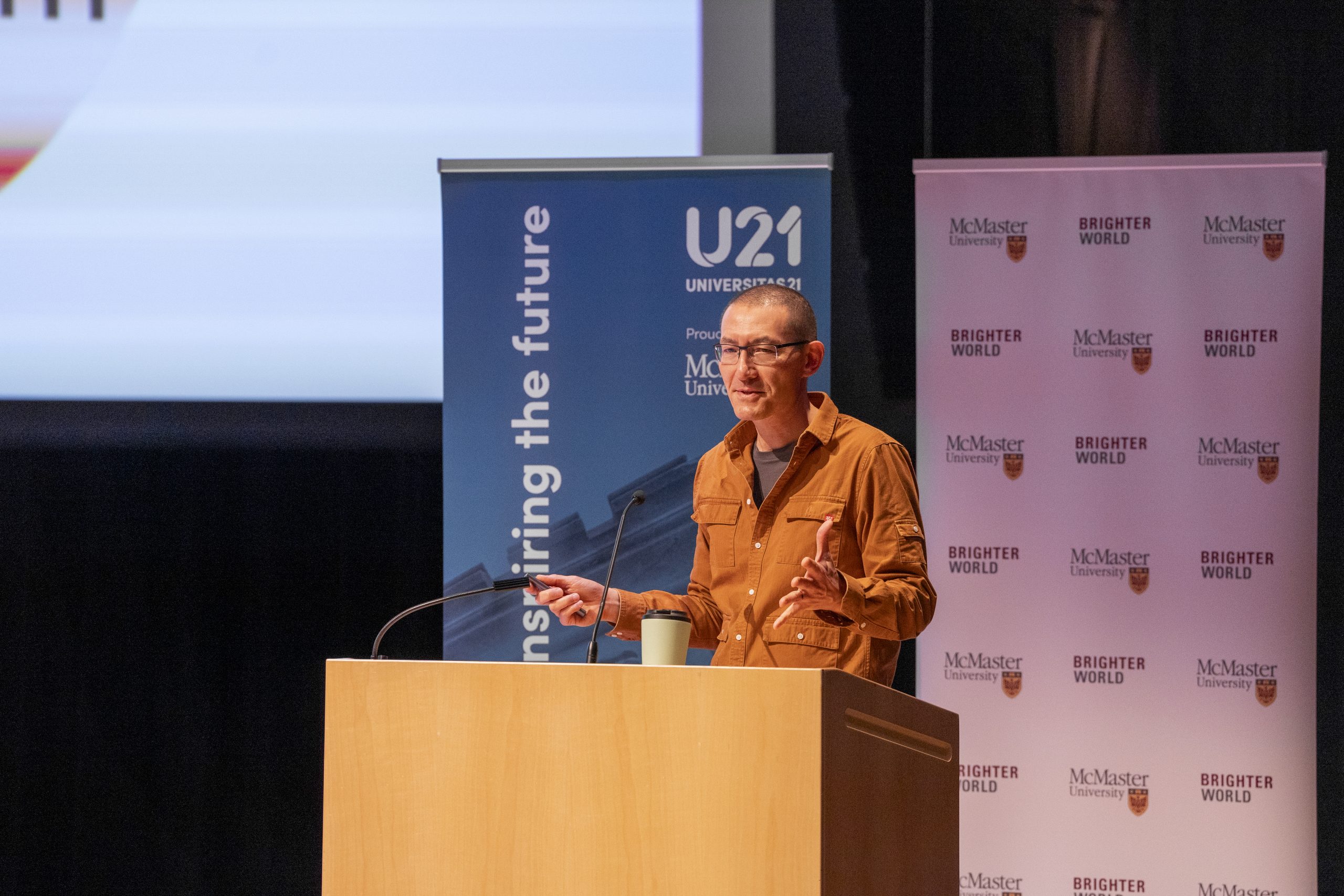CROSS-CAMPUS CONSULTATIONS KEY TO DEVELOPING STRATEGY
Between August 2021 and January 2023, more than 850 educators and learners were engaged in the development of McMaster’s first Digital Learning Strategic Framework. A summary of the phased approach can be found below, including engagement goals and number of people engaged.
Phase 1: Building the Vision and Principles
Objectives for Phase 1 included:
- To share the university community’s sentiments towards digital learning and the opportunities that come with a strategy
- To confirm the definition and scope of digital learning at McMaster
- To gather feedback that helps us determine the vision/goals for the strategy, and guiding principles
- To connect key stakeholders across the university to support change management
50 campus partners were engaged in focus groups targeting with the following groups:
- Provost’s Council
- Associate Deans Group
- Faculty IT Leads, including representatives for MacPherson – Avenue to Learn, Equity and Inclusion Office – Web Content Accessibility, and McMaster Center for Continuing Education
Phase 2: Testing and Refining the Vision and Principles
Objectives for Phase 2 included:
- To collect feedback on the draft vision and principles of the Strategy
- To learn more about what the McMaster community wants the Digital Learning Strategy to achieve
- To provide an opportunity for educators share their reflections on their experience teaching and learning with digital tools and technologies
- To collect interest amongst the campus community on the implementation of the strategy
More than 700 students, instructors and staff completed an online survey. A total of 13 focus groups engaged 158 campus partners in conversations regarding the draft strategic framework for digital learning. Feedback was collected from:
- Provost’s Council
- Associate Deans Group
- McMaster’s Teaching and Learning Advisory Committee
- MSU President and Vice-President (Education)
- Teaching and Learning with Technology Committee
- Active and Flexible Learning Spaces Teaching and Learning Strategy Implementation Working Group
- Faculty IT Leads, including representatives for MacPherson – Avenue to Learn, Equity and Inclusion Office – Web Content Accessibility, and McMaster Center for Continuing Education
- IT Student Advisory Committee (ITSAC)
- Indigenous Education Council (IEC)
- MacPherson Staff
- Equity and Inclusion Office Student User Testing Team
- Accessibility Stakeholders including representatives from the PACBIC Disability, Inclusion, Madness, Accessibility, NeuroDiversity (DIMAND) working group and Employee Accessibility Network
Phase 3: Determining and Prioritizing Actions
Objectives for Phase 3 included:
- To strike a Digital Learning Strategy Steering Committee
- To refine the strategic priorities
- To draft actions to advance the strategic priorities
The Steering Committee was struck at the end of Phase 2 and key themes from engagement activities were reported to the group. One of the questions asked during Phase 2 was “What actions might help us to achieve the strategic priorities?”. Responses to this question from focus group and survey participants were organized into key themes and informed draft actions to advance the strategic priorities. The Steering Committee were deeply involved in the analysis of feedback and development of what are now referred to in the strategic framework as commitments.
Additionally, over 25 participants in a workshop hosted in May of 2022 as part of the Provost’s Office Idea Exchange were engaged in the development of action items, as well as our 18 Teaching and Learning Advisory Committee members.
Phases 4 and 5: Draft Strategy & Finalization
Objectives for Phases 4 and 5 included:
- To collect feedback on the the draft strategic priorities, commitments and key projects
- To check if the strategic framework resonated with the McMaster community
- To ensure that nothing missing from the strategic framework
- To discuss ideas for implementation
More than 70 campus partners were engaged in focus groups, including:
- Faculty Deans
- President and Provost
- Associate Deans Group
- MacPherson Staff
- McMaster’s Teaching and Learning Advisory Committee
- Participants at McMaster’s IT Forum
- McMaster Library
- University Technology Services
- MSU President’s Council, President and Vice-President (Education)
- Digital Learning Strategy Steering Committee
- Equity and Inclusion Office
News & Updates

Daily News ➚
‘It has become necessary to have conversations about AI’s role within the academic setting’
Generative AI, Teaching & Learning, Teaching Excellence

